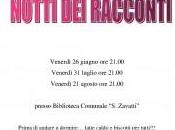 Il corpo della donna è stato disegnato alla perfezione per sottintendere a tutte le necessità del feto e del neonato. Se sei unaprimipara è normale che tu ti senta insicura e che tu abbia dei dubbi su ciò che sarà prendersi cura di un essere piccolo e fragile. Rilassati, utilizza il tuo sesto senso e lascia fluire il tuo istinto naturale, tutto andrà bene.
Il corpo della donna è stato disegnato alla perfezione per sottintendere a tutte le necessità del feto e del neonato. Se sei unaprimipara è normale che tu ti senta insicura e che tu abbia dei dubbi su ciò che sarà prendersi cura di un essere piccolo e fragile. Rilassati, utilizza il tuo sesto senso e lascia fluire il tuo istinto naturale, tutto andrà bene.Che cos'è il colostro?
Il colostro è il liquido di colore biancastro secreto dai tuoi seni durante i due tre giorni dopo il parto, prima che avvenga la montata lattea. Se il tuo parto è avvenuto mediante taglio cesareo, il latte tarderà un po' di più a scendere. Offri subito il seno al tuo bambino, se possibile entro la prima mezz'ora di vita. Non aver paura, anche se ti sembra poco, quel colostro è preziosissimo!Il colostro ha un sapore molto simile al liquido . Questo aiuta sul piano emozionale il tuo bambino a sentirsi sicuro ed inoltre è ricco di anticorpi e globuli bianchi, ha un altro contenuto in nutrienti, minerali, proteine; contiene vitamina A ed E. La sua composizione è bassa in lattosio rispetto al latte materno. Durante la tua gravidanza il tuo corpo si è preparato alla produzione di colostro per offrirlo al tuo bimbo dopo la nascita. Non ti spaventare se la quantità ti sembra insufficiente, non lo è affatto.Il colostro è un composto facilmente digeribile per il neonato e lo stimola ad avere la sua prima defecazione, che si chiama meconio. Questo deve essere prodotto entro le prime 24 ore di vita, per questo è così importante che il tuo bebè prende il colostro subito dopo la nascita.Inoltre, quanto prima il tuo bimbo inizierà a succhiare, tanto prima comincerai a produrre latto materno.Ovviamente, allattare subito il tuo bambino lo aiuterà a sviluppare il legame madre-figlio.Questo liquido darà al piccolo una protezione naturale per far fronte alle possibili infezioni iniziando a fortificare il suo sistema immunitario e a creare la flora intestinale. Regola la bilirubina riducendo il rischio di ittero (è ciò che succede ai bambini che assumono un colorito giallastro). Inoltre prepara il suo sistema digestivo per il momento in cui comincerai a secernere latte materno, che è più difficile da digerire.Sono tanti i benefici del colostro per il neonato, anche per quelli che berranno solo latte artificiale.
The woman's body has been designed to perfection to imply all the needs of the fetus and newborn. If you are unaprimipara is normal that you feel insecure and you are in doubt about what will be taking care of a small and fragile. Relax, use your sixth sense and let it flow your natural instinct, everything will be fine.
What is colostrum?
Colostrum is the fluid secreted by the whitish color of your breasts during two or three days after giving birth, the milk before it happens. If your delivery has occurred by cesarean section, the milk tarry a little 'more to fall.
Immediately offer the breast to your baby, if possible within the first half hour of life. Do not be afraid, even if that was not enough, that colostrum is precious!
Colostrum has a similar flavor
to the liquid. This helps on an emotional level your child feel safe and also is rich in antibodies and white blood cells, has another nutrient content, minerals, proteins; contains vitamin A and E. Its composition is low in lactose compared to milk. During your pregnancy your body is prepared for the production of colostrum to offer it to your baby after birth. Do not be scared if you think the amount is insufficient, it is not at all.
Colostrum is a compound easily digestible for the infant and encourages him to have his first bowel movement, called meconium. This must be produced within the first 24 hours of life, why is it so important that your baby gets the colostrum immediately after birth.
In addition, as soon as your baby begins to suck, the sooner you will begin to produce lacto materno.Ovviamente, breastfeed your baby right away will help him develop the mother-child bond.
This will give the liquid a little natural protection to cope with possible infection starting to fortify your immune system and build the intestinal flora. Rule bilirubin reducing the risk of jaundice (that's what happens to children who are taking a yellowish color). It also prepares your digestive system to the point at which you begin to secrete milk, which is more difficult to digest.
There are many benefits of colostrum for the newborn, even for those who only drink formula milk.





